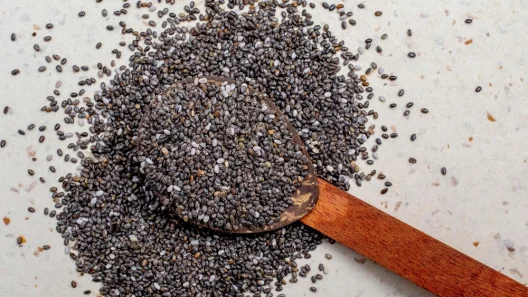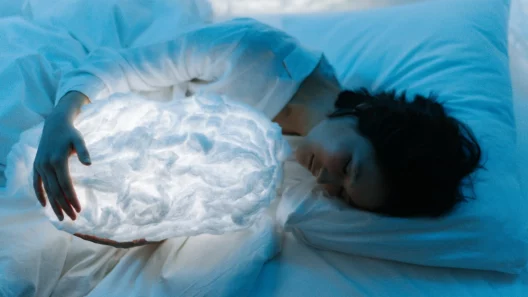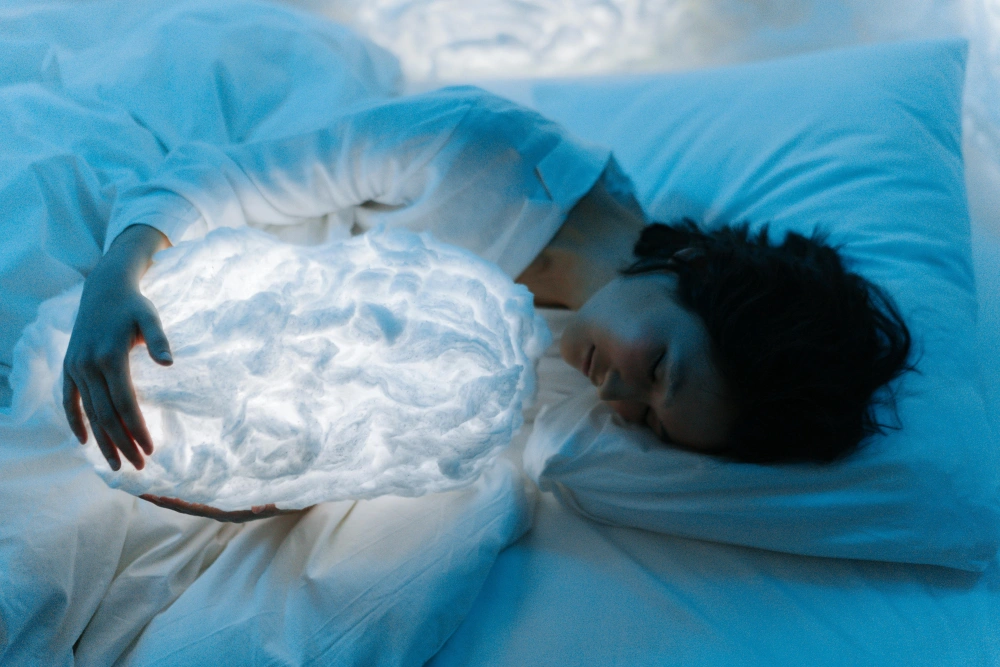Sleep is not merely a passive state of rest but an active, essential process that impacts every aspect of our health and wellbeing. With over 60 million Americans experiencing poor sleep quality and more than 30% of adults reporting insufficient rest, sleep challenges have become a widespread concern with serious health implications . The consequences extend far beyond daytime fatigue, poor sleep negatively affects memory, concentration, and mood while increasing the risk for depression, obesity, type 2 diabetes, and cardiovascular conditions . Fortunately, nature provides us with an array of evidence-supported remedies that can help restore healthy sleep patterns without the potential side effects of prescription medications. This comprehensive guide explores the scientific foundation behind natural sleep solutions, from traditional herbal aids to modern lifestyle adjustments, offering you practical strategies for achieving the restorative sleep your body needs to thrive.
Understanding Sleep and Why It Matters
The Science of Sleep Cycles
Sleep is a complex, dynamic process involving multiple cycles that repeat throughout the night. Each cycle consists of four stages: three stages of non-rapid eye movement (NREM) sleep and one stage of rapid eye movement (REM) sleep. The complete cycle typically lasts about 90-120 minutes, repeating four to six times per night. Deep sleep (Stage 3 NREM) is particularly crucial for physical restoration, tissue repair, and immune function, while REM sleep supports memory consolidation, learning, and emotional processing. Disruptions to these cycles, whether from lifestyle factors, stress, or underlying health conditions, can significantly impact sleep quality and next-day functioning .
Health Consequences of Poor Sleep
The effects of chronic sleep insufficiency extend throughout the body and mind:
- Immune function: Sleep deprivation weakens immune defenses, making you more susceptible to infections and impairing vaccine effectiveness .
- Mood regulation: Poor sleep increases irritability, anxiety symptoms, and depression risk by disrupting emotional processing circuits in the brain .
- Cognitive performance: Insufficient sleep impairs attention, concentration, problem-solving abilities, and memory consolidation .
- Metabolic health: Sleep deprivation disrupts glucose metabolism and appetite-regulating hormones, increasing obesity and diabetes risk .
- Cardiovascular system: Chronic sleep problems elevate blood pressure and increase the risk of heart disease over time .
These wide-ranging impacts underscore why quality sleep is foundational to overall health rather than a luxury.
Herbal and Plant-Based Sleep Aids
Chamomile Tea – Soothing Tradition Backed by Science
Chamomile tea has been used for centuries as a gentle sleep aid, and modern science has uncovered mechanisms behind its calming effects. According to researchers at Johns Hopkins Medicine, chamomile contains flavonoids that may interact with benzodiazepine receptors in the brain, which are involved in the sleep-wake transition . While large-scale clinical trials are limited, traditional use and preliminary research suggest that drinking a cup of chamomile tea about 30-60 minutes before bed can create a relaxing bedtime ritual that signals your body to wind down. Unlike many caffeinated beverages, chamomile tea is naturally caffeine-free, making it an ideal evening drink .
Valerian Root – The “Natural Sedative”
Valerian root is one of the most extensively studied herbal sleep aids, with research suggesting it may help improve sleep quality and reduce the time it takes to fall asleep . The effects appear to be related to compounds in valerian that may increase levels of gamma-aminobutyric acid (GABA), a neurotransmitter that promotes relaxation. Studies have used doses ranging from 300-600 milligrams taken approximately one hour before bedtime . It’s worth noting that valerian may be particularly helpful for menopausal and postmenopausal women experiencing sleep disturbances . However, this herb may cause side effects in some people and can interact with certain medications, so consultation with a healthcare provider is recommended before use .
Lavender – Aromatherapy and Essential Oils
Lavender’s soothing fragrance isn’t just pleasant, research indicates it has measurable relaxing effects. Lavender aromatherapy has been shown to improve sleep quality, with studies demonstrating its effectiveness for various populations, including older adults with dementia . The aroma is believed to promote relaxation by mildly inhibiting the nervous system. You can incorporate lavender into your bedtime routine through essential oil diffusers, pillow sprays, or by adding a few drops to a warm bath. While oral lavender supplements are available, they may cause digestive upset in some individuals, and essential oils should be used for aromatherapy rather than ingestion .
Passionflower – Calming Effects for Anxious Sleepers
Passionflower has gained attention for its potential to improve sleep, particularly for those whose sleep difficulties are related to anxiety or racing thoughts. Some research suggests that passionflower may be comparable to certain prescription sleep medications for improving sleep quality, though more studies are needed . Passionflower is thought to work by increasing GABA levels in the brain, similar to valerian root. It’s commonly consumed as a tea or in tincture form about an hour before bedtime. While generally safe for most adults, passionflower should be used with caution by those taking blood thinners or sedative medications .
Table: Comparison of Herbal Sleep Aids
| Remedy | Proposed Mechanism | Evidence Strength | Typical Dosage/Use |
| Chamomile | Flavonoids interacting with brain receptors | Moderate traditional support | 1 cup tea 30-60 min before bed |
| Valerian Root | May increase GABA activity | Moderate scientific evidence | 300-600 mg extract before bed |
| Lavender | Aromatherapy calming nervous system | Moderate for aromatherapy | Diffusion or topical application |
| Passionflower | May increase GABA levels | Promising but limited | Tea or extract before bed |
Natural Supplements That Support Rest
Melatonin – Regulating Your Body Clock
Melatonin is a hormone naturally produced by your brain in response to darkness, playing a crucial role in regulating your sleep-wake cycle . Supplemental melatonin can be particularly helpful for addressing circadian rhythm disruptions, such as those caused by jet lag, shift work, or delayed sleep phase disorder. Research indicates that melatonin can reduce the time it takes to fall asleep and may improve overall sleep quality, especially in individuals with sleep disorders . Typical doses range from 0.5-5 milligrams taken 30-60 minutes before bedtime. Because melatonin supplements are not strictly regulated, it’s important to choose reputable brands and consult with a healthcare provider, especially for long-term use .
Magnesium – The Relaxation Mineral
Magnesium plays a vital role in hundreds of biochemical processes in the body, including those related to sleep regulation. This essential mineral helps quiet the mind and body by supporting the function of GABA receptors in the brain . Studies suggest that magnesium supplementation may improve sleep quality, particularly in older adults and those with low magnesium levels. Forms like magnesium glycinate and bisglycinate are particularly well-absorbed and less likely to cause digestive discomfort compared to other forms . The recommended dosage for sleep support typically ranges from 200-400 milligrams about an hour before bedtime. Dietary sources of magnesium include leafy greens, nuts, seeds, and whole grains, but supplements can help address deficiencies that may impact sleep .
L-Theanine – Calming Amino Acid Found in Tea
L-theanine is an amino acid naturally found in tea leaves that promotes relaxation without causing drowsiness. Research suggests that L-theanine may help reduce stress and anxiety, thereby supporting better sleep quality . Unlike many sleep aids, L-theanine doesn’t typically cause morning grogginess, making it an attractive option for those who need to maintain alertness during the day while addressing sleep issues at night. Studies indicate that L-theanine may be particularly effective when combined with magnesium or GABA . Typical supplemental doses range from 100-200 milligrams daily, and it can also be obtained by consuming green tea (though the caffeine content makes tea less ideal for evening use) .
Lifestyle and Sleep Hygiene Practices
Creating a Bedtime Ritual
Consistent bedtime rituals signal to your brain that it’s time to wind down, activating the parasympathetic nervous system responsible for relaxation. Effective rituals are personal but often include reading a physical book (not on a screen), taking a warm bath, practicing gentle stretching, or drinking a caffeine-free herbal tea . The key is consistency, performing the same sequence of calming activities each night trains your brain to recognize these cues as precursors to sleep. Research suggests that a consistent wind-down routine can significantly improve sleep onset latency (the time it takes to fall asleep) and sleep quality over time .
Optimizing Your Sleep Environment
Your bedroom environment significantly impacts sleep quality. Three key factors to optimize are:
- Light: Darkness triggers melatonin production, so use blackout curtains or a sleep mask to block ambient light. If you need to get up at night, use a dim flashlight rather than turning on bright lights .
- Temperature: The ideal bedroom temperature for sleep is between 65-72°F (18-22°C). A cooler environment supports the natural drop in core body temperature that occurs during sleep .
- Noise: Minimize disruptive sounds with earplugs, white noise machines, or fans. Consistency of sound is often more important than complete silence .
Additionally, keeping your bedroom clutter-free can reduce subconscious stress that interferes with relaxation .
Digital Detox Before Bed
The blue light emitted by smartphones, tablets, and computers suppresses melatonin production, disrupting your natural sleep-wake cycle . Experts recommend avoiding screens for at least 1-2 hours before bedtime. If you must use devices in the evening, enable night mode settings that reduce blue light emission. Replacing screen time with calming activities like reading, gentle stretching, or conversation can significantly improve sleep quality. As the team at Mudita suggests, “Unplug your devices and replace screen time with calming rituals” to prepare your brain for rest .
Exercise and Its Role in Better Sleep
Regular physical activity is one of the most effective natural remedies for improving sleep quality. Moderate aerobic exercise increases the amount of deep, slow-wave sleep you get each night . However, timing is important, finishing workouts at least 2-3 hours before bedtime allows your body temperature and endorphin levels to normalize, preventing interference with sleep onset. Consistency matters more than intensity; even regular light exercise like walking can yield significant sleep benefits .
Looking to learn more about holistic approaches to wellness? Check out our Ultimate Guide to Natural Remedies for Everyday Health.
Mind-Body Approaches to Better Sleep
Meditation and Mindfulness
Meditation and mindfulness practices can effectively calm the racing thoughts that often interfere with sleep. These practices reduce physiological arousal by lowering heart rate, blood pressure, and stress hormone levels. Research shows that regular meditation can improve sleep quality by enhancing relaxation and reducing anxiety. Even 10-15 minutes of daily practice can yield benefits. Mindfulness-based stress reduction (MBSR) techniques have been particularly effective for people with chronic insomnia.
Breathing Exercises
Simple breathing exercises can activate the parasympathetic nervous system, triggering the body’s relaxation response. The 4-7-8 technique (inhale for 4 counts, hold for 7 counts, exhale for 8 counts) is particularly effective for sleep preparation. This pattern increases oxygen exchange and slows heart rate, promoting a state of calm. Consistent practice can make this technique more effective over time, creating a powerful tool for managing pre-sleep anxiety .
Gentle Evening Yoga or Stretching
Gentle yoga or stretching in the evening can release physical tension that might otherwise interfere with sleep. Restorative yoga poses, such as legs-up-the-wall or child’s pose, promote relaxation by stimulating the vagus nerve, which controls the parasympathetic nervous system. The key is to focus on gentle, relaxing stretches rather than vigorous sequences that might increase alertness. Even 5-10 minutes of gentle stretching before bed can make a noticeable difference in sleep quality .
When to Seek Professional Help
Red Flags for Sleep Disorders
While natural remedies can help with occasional sleep difficulties, certain symptoms indicate the need for professional evaluation:
- Chronic insomnia: Sleep problems lasting more than three months despite implementing healthy sleep practices .
- Symptoms of sleep apnea: Loud snoring, gasping for air during sleep, witnessed breathing pauses, or excessive daytime sleepiness .
- Restless legs syndrome: Uncomfortable sensations in the legs accompanied by an urge to move them, typically worsening in the evening.
- Persistent daytime impairment: Difficulty functioning during the day due to fatigue, mood disturbances, or cognitive problems related to poor sleep.
If you experience any of these issues, consult with a healthcare provider who can properly diagnose and treat underlying sleep disorders.
Integrating Natural Remedies with Medical Treatment
Natural sleep approaches can often complement medical treatments under professional guidance. For instance, relaxation techniques may enhance the effectiveness of cognitive behavioral therapy for insomnia (CBT-I), which is considered a first-line treatment for chronic sleep problems. Always inform your healthcare provider about any natural supplements you’re taking, as they can interact with medications. A comprehensive approach that addresses both lifestyle factors and any underlying medical conditions typically yields the best long-term results .
Conclusion
Achieving restful sleep is a journey that often requires patience and experimentation. The most effective approach typically combines multiple natural strategies, perhaps starting with improved sleep hygiene practices and gradually incorporating specific supplements or herbal remedies that address your unique sleep challenges. Remember that consistency is key; most natural remedies and lifestyle changes require regular practice over several weeks to demonstrate their full benefits.
Rather than seeking a single “magic bullet,” consider how these various approaches can work together synergistically. A calming bedtime ritual that includes herbal tea, a digital detox, and relaxation techniques may prove more powerful than any single intervention alone. By viewing natural sleep remedies as part of a comprehensive approach to wellness, you can create sustainable habits that support not just better sleep, but better overall health.
As you explore these natural sleep solutions, remember that occasional sleep difficulties are normal, but persistent problems warrant professional attention. By combining evidence-based natural approaches with medical guidance when needed, you can reclaim the restorative sleep your body needs to thrive.
For more natural approaches to wellness, explore our related articles on gut health and migraine relief.
Remember: Always consult with a healthcare professional before starting any new supplement regimen, especially if you have existing health conditions or take prescription medications.










